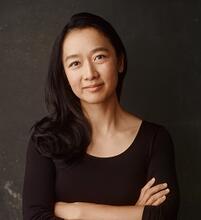“Narratives of Foreign Media Ecosystems in Chinese Social Media Discussions of the Russo-Ukranian War,” Jennifer Pan, Stanford

QUANTITATIVE RESEARCH METHODS WORKSHOP
Abstract: How do people living in countries such as China with strong government censorship learn about foreign news? The prevailing expectation is that these governments act as the sole gatekeepers of information about foreign affairs. In this paper, we argue that foreign news is shaped by media organizations, online news websites, social media platforms, and political actors from different countries role, even in relatively closed information systems such as China. To assess this argument, we collect 475,231 posts from Weibo, one of China’s largest social media platforms, related to Russia’s initial invasion of Ukraine and over 24 million articles from 10,000 news domains in China, Russia, Ukraine, and the United States in the same period to examine whether Chinese social media narratives originated in these four media ecosystems. We identify distinct narratives by utilizing several large language embedding models, clustering techniques, and automatic summarization. We then identify the media ecosystems where such narratives originated by comparing the posting time of narratives co-occurring between Weibo posts and news articles and utilizing a network-based inference algorithm.
Jennifer Pan is a political scientist whose research focuses on political communication, digital media, and authoritarian politics. She is the Sir Robert Ho Tung Professor of Chinese Studies, Professor of Communication and (by courtesy) Political Science and Sociology, and a Senior Fellow at the Freeman Spogli Institute for International Studies at Stanford University. Dr. Pan’s research uses experimental and computational methods with large-scale datasets on political activity to answer questions about the role of digital media in authoritarian and democratic politics, including how political censorship, propaganda, and information manipulation work in the digital age and how preferences and behaviors are shaped as a result.
This workshop is open to the Yale community. To receive announcements and invitations to attend, please subscribe at https://csap.yale.edu/quantitative-research-methods-workshop.
This series is sponsored by the ISPS Center for the Study of American Politics and The Whitney and Betty MacMillan Center for International and Area Studies at Yale with support from the Edward J. and Dorothy Clarke Kempf Fund.